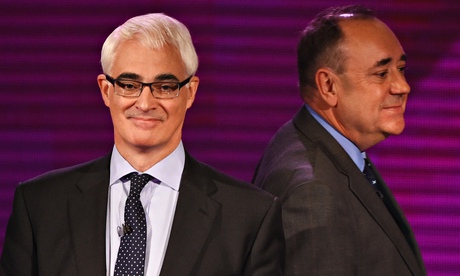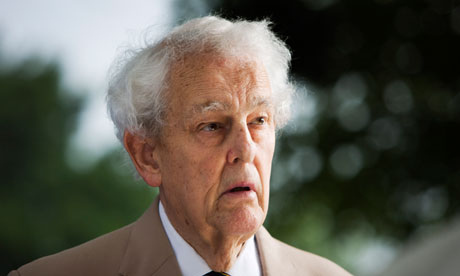England is dysfunctional, corrupt and vastly unequal. Who on earth would want to be tied to such a country?

Imagine the question posed the other way round. An independent nation is asked to decide whether to surrender its sovereignty to a larger union. It would be allowed a measure of autonomy, but key aspects of its governance would be handed to another nation. It would be used as a military base by the dominant power and yoked to an economy over which it had no control.
It would have to be bloody desperate. Only a nation in which the institutions of governance had collapsed, which had been ruined economically, which was threatened by invasion or civil war or famine might contemplate this drastic step. Most nations faced even with such catastrophes choose to retain their independence – in fact, will fight to preserve it – rather than surrender to a dominant foreign power.
So what would you say about a country that sacrificed its sovereignty without collapse or compulsion; that had no obvious enemies, a basically sound economy and a broadly functional democracy, yet chose to swap it for remote governance by the hereditary elite of another nation, beholden to a corrupt financial centre?
What would you say about a country that exchanged an economy based on enterprise and distribution for one based on speculation and rent? That chose obeisance to a government that spies on its own citizens, uses the planet as its dustbin, governs on behalf of a transnational elite that owes loyalty to no nation, cedes public services to corporations, forces terminally ill people to work and can’t be trusted with a box of fireworks, let alone a fleet of nuclear submarines? You would conclude that it had lost its senses.
So what’s the difference? How is the argument altered by the fact that Scotland is considering whether to gain independence rather than whether to lose it? It’s not. Those who would vote no – now, a new poll suggests, a rapidly diminishing majority – could be suffering from system justification.
System justification is defined as the “process by which existing social arrangements are legitimised, even at the expense of personal and group interest”. It consists of a desire to defend the status quo, regardless of its impacts. It has been demonstrated in a large body of experimental work, which has produced the following surprising results.
System justification becomes stronger when social and economic inequality is more extreme. This is because people try to rationalise their disadvantage by seeking legitimate reasons for their position. In some cases disadvantaged people are more likely than the privileged to support the status quo. One study found that US citizens on low incomes were more likely than those on high incomes to believe that economic inequality is legitimate and necessary.
It explains why women in experimental studies pay themselves less than men, why people in low-status jobs believe their work is worth less than those in high-status jobs, even when they’re performing the same task, and why people accept domination by another group. It might help to explain why so many people in Scotland are inclined to vote no.
The fears the no campaigners have worked so hard to stoke are – by comparison with what the Scots are being asked to lose – mere shadows. As Adam Ramsay points out in his treatise Forty-Two Reasons to Support Scottish Independence, there are plenty of nations smaller than Scotland that possess their own currencies and thrive. Most of the world’s prosperous nations are small: there are no inherent disadvantages to downsizing.
Remaining in the UK carries as much risk and uncertainty as leaving. England’s housing bubble could blow at any time. We might leave the European Union. Some of the most determined no campaigners would take us out: witness Ukip’s intention to stage a “pro-union rally” in Glasgow on 12 September. The union in question, of course, is the UK, not Europe. This reminds us of a crashing contradiction in the politics of such groups: if our membership of the EU represents an appalling and intolerable loss of sovereignty, why is the far greater loss Scotland is being asked to accept deemed tolerable and necessary.
The Scots are told they will have no control over their own currency if they leave the UK. But they have none today. The monetary policy committee is based in London and bows to the banks. The pound’s strength, which damages the manufacturing Scotland seeks to promote, reflects the interests of the City.
To vote no is to choose to live under a political system that sustains one of the rich world’s highest levels of inequality and deprivation. This is a system in which all major parties are complicit, which offers no obvious exit from a model that privileges neoliberal economics over other aspirations. It treats the natural world, civic life, equality, public health and effective public services as dispensable luxuries, and the freedom of the rich to exploit the poor as non-negotiable.
Its lack of a codified constitution permits numberless abuses of power. It has failed to reform the House of Lords, royal prerogative, campaign finance and first-past-the-post voting (another triumph for the no brigade). It is dominated by media owned by tax exiles, who, instructing their editors from their distant chateaux, play the patriotism card at every opportunity. The concerns of swing voters in marginal constituencies outweigh those of the majority; the concerns of corporations with no lasting stake in the country outweigh everything. Broken, corrupt, dysfunctional, retentive: you want to be part of this?
Independence, as more Scots are beginning to see, offers people an opportunity to rewrite the political rules. To create a written constitution, the very process of which is engaging and transformative. To build an economy of benefit to everyone. To promote cohesion, social justice, the defence of the living planet and an end to wars of choice.
To deny this to yourself, to remain subject to the whims of a distant and uncaring elite, to succumb to the bleak, deferential negativity of the no campaign, to accept other people’s myths in place of your own story: that would be an astonishing act of self-repudiation and self-harm. Consider yourselves independent and work backwards from there; then ask why you would sacrifice that freedom.

